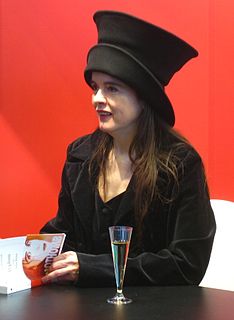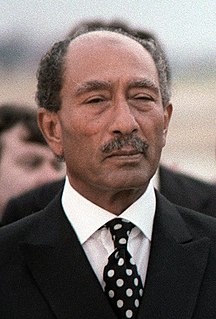A Quote by Plato
Whenever a person strives, by the help of dialectic, to start in pursuit of every reality by a simple process of reason, independent of all sensuous information - never flinching, until by an act of the pure intelligence he has grasped the real nature of good - he arrives at the very end of the intellectual world.
Related Quotes
It is a law of nature we overlook, that intellectual versatility is the compensation for change, danger, and trouble. An animal perfectly in harmony with its environment is a perfect mechanism. Nature never appeals to intelligence until habit and instinct are useless. There is no intelligence where there is no change and no need of change. Only those animals partake of intelligence that have a huge variety of needs and dangers.
It’s true that someone will always say that good and evil don’t exist: that is a person who has never had any dealings with real evil. Good is far less convincing than evil, but it’s because their chemical structures are different. Like gold, good is never found in a pure state in nature: it therefore doesn’t seem impressive. It has the unfortunate tendency not to act; it prefers, passively, to be seen.
In the world of knowledge, the essential Form of Good is the limit of our inquiries, and can barely be perceived; but, when perceived, we cannot help concluding that it is in every case the source of all that is bright and beautiful -in the visible world giving birth to light and its master, and in the intellectual world dispensing, immediately and with full authority, truth and reason -and that whosoever would act wisely, either in private or in public, must set this Form of Good before his eyes.
I found that I faced a highly complex situation, and that I couldnt hope to change it until I had armed myself with the necessary psychological and intellectual capacity. My contemplation of life and human nature in that secluded place had taught me that he who cannot change the very fabric of his thought will never be able to change reality, and will never, therefore, make any process.
The spirit of philosophy is one of free inquiry. It suspects all authority. Its function is to trace the uncritical assumptions of human thought to their hiding places, and in this pursuit it may finally end in denial or a frank admission of the incapacity of pure reason to reach the ultimate reality.
First, Know well that Intellectuality is not intelligence. To be intellectual is to be phony; it is a pretending intelligence. It is not real because it is not yours; it is borrowed. Intelligence is the growth of inner consciousness. It has nothing to do with knowledge, it has something to do with meditativeness. An intelligent person does not function out of his past experience; he functions in the present. He does not react, he responds. Hence he is always unpredictable; one can never be certain what he is going to do.
When it comes to exploring your creative side, it's very easy to think of all the reasons you can't do it-you don't have the time, you don't have the money, etc.-but if you are truly passionate about expressing yourself, you can find a way. When you feel as though you can't do something, the simple antidote is action: Begin doing it. Start the process, even if it's just a simple step, and don't stop at the beginning. Take the next step and the next until what you've dreamed about begins to become reality.
Developing characters is a collective process, on one hand; it's an individual process on the other. The truth is rarely pure and never simple, as dear Oscar Wilde would say. A great of it, of course, is, you collect as much information as you can and then you put it into the mulberry of your mind and hope that you come up with a decent wine. Sometimes you do; sometimes you don't.
This harmony that human intelligence believes it discovers in nature - does it exist apart from that intelligence? No, without doubt, a reality completely independent of the spirit which conceives it, sees it or feels it, is an impossibility. A world so exterior as that, even if it existed, would be forever inaccessible to us. But what we call objective reality is, in the last analysis, that which is common to several thinking beings, and could be common to all; this common part, we will see, can be nothing but the harmony expressed by mathematical laws.








































